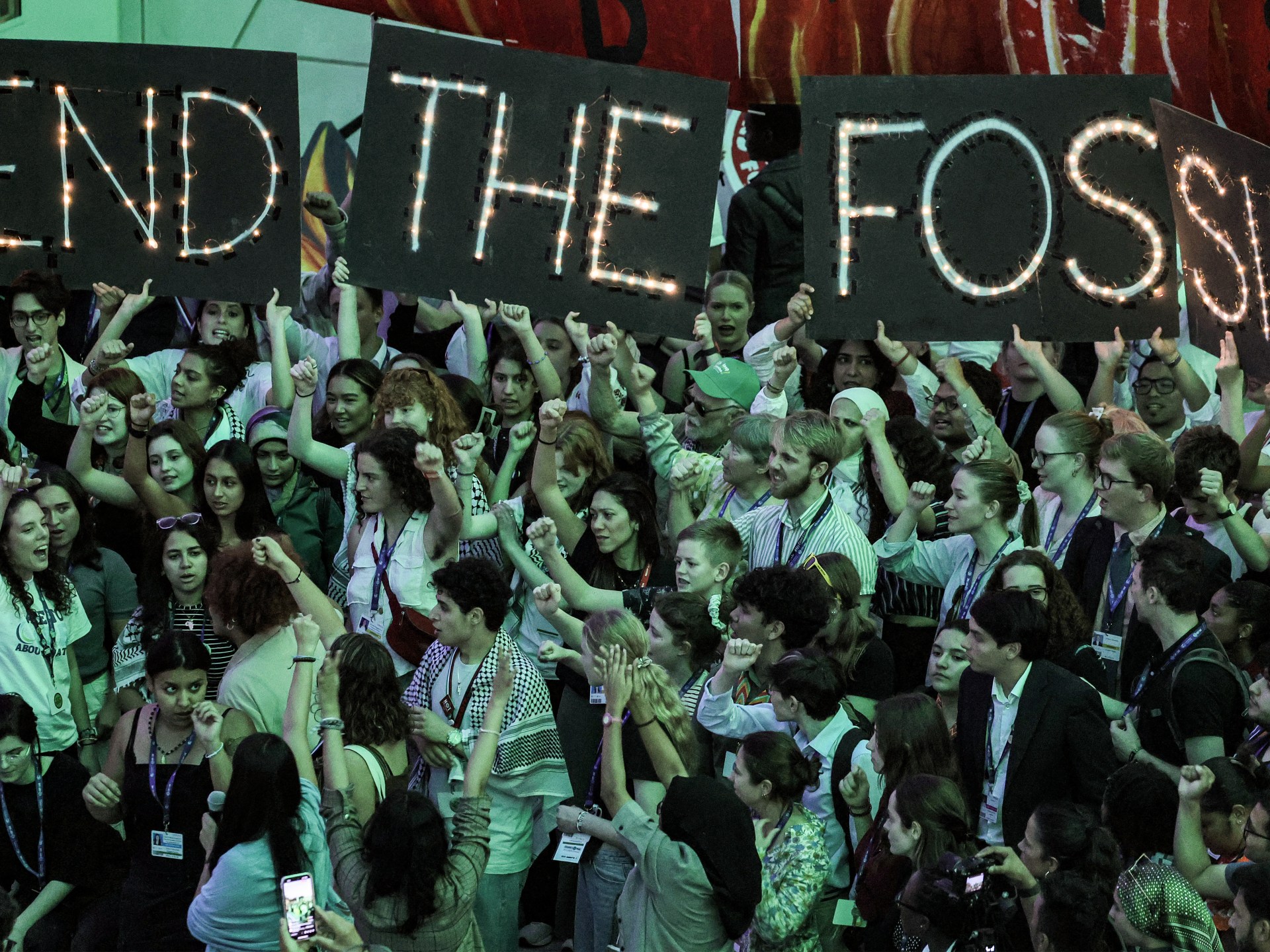While latest COP28 draft text avoids phrase ‘phase out’, campaigners say it is an improvement on the last one.
A new draft text calling on the world to wean itself off planet-warming fossil fuels has been floated at the United Nations COP28 climate talks in Dubai after an outcry over an earlier proposal forced the summit to be extended.
After the previous draft drew fire for offering a list of options that “could” be taken to combat the dangerous heating of the planet, the new draft explicitly “calls on” all nations to contribute through a series of actions.
The actions include “transitioning away from fossil fuels in energy systems, in a just, orderly and equitable manner, accelerating action in this critical decade, so as to achieve net zero by 2050 in keeping with the science,” it said.
“It is the first time that the world unites around such a clear text on the need to transition away from fossil fuels,” said Norway’s minister for climate and the environment, Espen Barth Eide. “It has been the elephant in the room – at last, we address it head-on. This is the outcome of extremely many conversations and intense diplomacy.”
Although the text did not include the words “phase out”, campaigners said the latest draft was better than the previous version.
“This draft is a sorely needed improvement from the last version, which rightly caused outrage,” said Stephen Cornelius, the World Wide Fund for Nature (WWF)’s deputy global climate and energy lead. “The language on fossil fuels is much improved but still falls short of calling for the full phase-out of coal, oil and gas.”
Intensive negotiations continued well into the small hours of Wednesday morning after the conference presidency’s initial document angered many countries by avoiding decisive calls for action on fossil fuels, the major driver of global heating.
The United Arab Emirates (UAE)-led presidency presented delegates from nearly 200 nations with a new central document – called the global stocktake – just after sunrise.
It is the third version of the document to be presented in about two weeks and the word “oil” does not appear anywhere in the 21-page document. It mentions “fossil fuels” twice, but Alden Meyer, a veteran climate negotiations analyst at the European think tank E3G, said that if approved, it would be somewhat of a first mention of fossil fuels in the context of getting rid of them.
The conference in UAE, one of the world’s major oil producers, has faced criticism for close ties with fossil fuel interests from the start, especially after Sultan al-Jaber, who runs a state oil company, was appointed to preside over the negotiations.
The aim of the global stocktake is to help nations align their national climate plans with the 2015 Paris Agreement, which calls to limit warming to 1.5C (2.7F).
The world is already on its way to smashing the record for the hottest year, endangering human health and leading to ever more costly and deadly extreme weather.
Nations are expected to meet again after they have had a few hours to digest the new text. That meeting could either adopt the text or send it back to negotiators for more revisions.
Other documents presented early on Wednesday addressed, somewhat, the issues of money to help poorer nations adapt to global warming and emit less carbon, as well as how countries should adapt to a warming climate.
Many financial issues are supposed to be hammered out over the next two years at upcoming climate conferences in Azerbaijan and Brazil.
The United Nations Environment Programme estimates that developing nations need $194-366bn per year to help adapt to a warmer and wilder world.
“Overall, I think this is a stronger text than the prior versions we have seen,” said the UN Foundation’s senior adaptation adviser, Cristina Rumbaitis del Rio. “But it falls short in mobilising the financing needed to meet those targets.”
COP28 was supposed to end on Tuesday.
This story originally Appeared on Aljazeera


